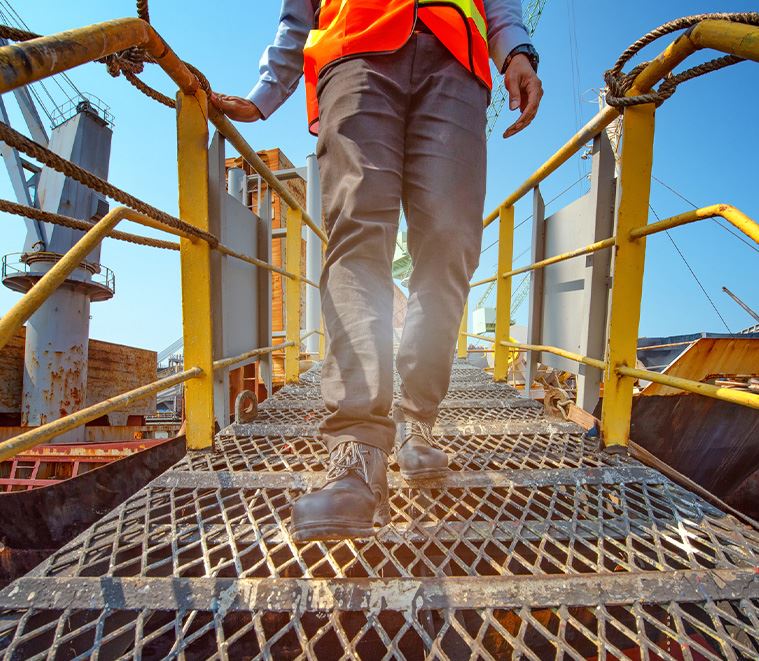
Bryan-College Station Offshore Injury Lawyer
Offshore injuries are a significant concern for workers in various industries that operate in marine environments. If you have suffered an injury as a worker in the maritime industry, you will need the knowledge and skills of an injury lawyer who is experienced in this field. The laws governing offshore injuries are not the same as those governing injuries that take place on land. Because of this, it is vital that you work with an attorney who understands the unique challenges associated with these cases.
At Paradowski Law, Attorney Jeff Paradowski is uniquely qualified to handle offshore and maritime injury claims. Jeff has been Board Certified in personal injury trial law by the Texas Board of Legal Specialization which puts him at the pinnacle of his profession. He understands the various laws pertaining to these matters and how they apply in different scenarios. To seek the compensation you need and deserve after a serious injury that has occurred offshore, we urge you to discuss your case directly with Jeff in a free consultation.
Arrange for your free consultation with our Bryan-College Station offshore injury attorney by calling a team member at (855) 524-2976 or contact us via email.
Injury Cases Involving Maritime Law
If you are a sailor, dock worker, longshoreman, or other individual working on an oil rig, drilling platform, or commercial boat, at a port or dock, or on water, your rights regarding worker safety and injury compensation are dictated by maritime law.
Offshore injuries generally occur in several industries that operate in or near bodies of water, including:
- Oil and gas: Workers on offshore oil rigs and platforms face unique hazards, including heavy machinery, hazardous materials, and extreme weather conditions.
- Commercial fishing: Fishing is one of the most dangerous occupations in the world, with workers facing risks such as drowning, falls, and injuries from equipment.
- Maritime transportation: Seafarers on cargo ships, tankers, and other vessels face risks from heavy loads, falls, and exposure to hazardous substances.
- Shipbuilding and repair: Workers in shipyards face potential injuries from welding, heavy lifting, and exposure to toxic materials.
- Offshore renewable energy: Employees working on wind and wave energy projects may experience similar hazards as those in the oil and gas industry.
In cases involving offshore injuries, maritime law, also known as admiralty law, governs all maritime activities, including injuries. This is a body of law that has developed over centuries and is based on a combination of international treaties, federal statutes, and case law. It includes such laws as the Jones Act, the Longshore and Harbor Workers’ Compensation Act (LHWCA), and the Outer Continental Shelf Lands Act (OCSLA).
The Jones Act
The Jones Act, also known as the Merchant Marine Act of 1920, is a federal statute that provides seamen with the right to seek compensation for injuries sustained while working on a vessel.
To qualify for protection under the Jones Act, a worker must:
- Be a "seaman" – someone who spends a significant amount of their work time on a vessel or fleet of vessels
- Work on a vessel that is "in navigation" – meaning it is capable of moving and engaged in commerce
Under the Jones Act, seamen can sue their employer for negligence if they can prove that their injury was caused by the employer's breach of duty to provide a safe working environment. Proving negligence can allow you to secure compensation for your medical expenses, lost income, pain and suffering, emotional trauma, vocational rehabilitation, and other damages relevant to your case.
You may also be able to secure compensation for daily living costs, called maintenance, as well as your medical expense by simply proving that you were injured due to performing your job duties.


-
About Our Firm
-
Case Studies
-
Helpful Articles